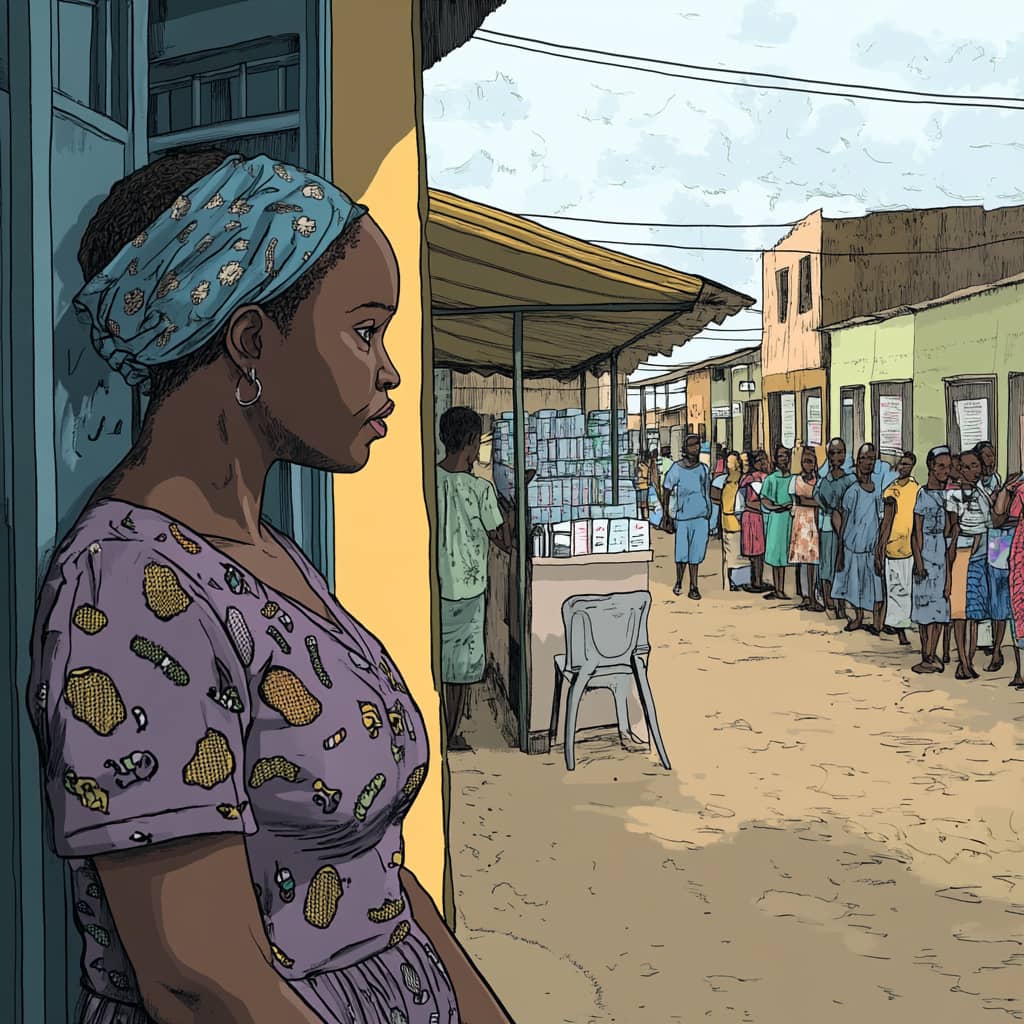The day the queue moved to the front of the clinic was the day Chinyere started hiding.
Not because she missed her appointment, but because her neighbour might see her.
Chinyere is a 34-year-old single mother of two, living in a tightly packed neighbourhood where everyone knows everyone. She runs a small tailoring shop tucked between a food kiosk and a barbershop. The income is modest, but it gives her independence, something she deeply values.
She was diagnosed with HIV three years ago and began ART at a nearby public clinic. At first, she was consistent with her refills. But then, the system changed.
The clinic recently moved its pickup point to the front entrance, open, exposed, with no privacy. It was just a wooden desk and a plastic chair under a small canopy, right by the clinic gate, and people queued up to collect their medications in full view of passersby.
And on Thursdays, the day she usually refilled, she saw her neighbour, a well-known midwife, who volunteered there.
“ I can’t let her see me,” Chinyere said, eyes lowered. “If people find out, they’ll stop bringing clothes to my shop. I’ll lose everything.”
To avoid being seen, she began skipping refills or sending her cousin with her ID. But she started skipping her viral load check appointments. While the refills weren’t the issue, the missed clinic days were. Over time, her viral load became detectable again.
She wasn’t afraid of the virus returning; she was afraid of being recognised.
A community health worker, reviewing recent discrepancies and irregular pickups, flagged her as “at-risk of disengagement”.
Through a gentle outreach, she was introduced to Retroviral Solutions (RVS), a partner program designed to support confidential, community-based care for clients facing stigma-related challenges.
RVS connected her with a nearby trusted pharmacy enrolled in its Private Refill Access Program (PRAP). The setup was simple but powerful:
-
A discreet consultation room ensured privacy.
-
Her medications were pre-arranged and logged quietly.
-
RVS handled logistics, supply tracking, and refill alerts.
She became one of 18 patients enrolled in the pilot phase of RVS’s discreet refill network, aimed at restoring adherence without exposing identity.
It was the same medication, but now delivered with dignity.
“When I walk into the pharmacy now, I just look like anyone buying paracetamol,” Chinyere shared. “No stares. No judgment. It feels like breathing again.”
Today, Chinyere’s adherence is back on track. She has achieved viral suppression again. Her quiet, final words say it best:
“Privacy is not a luxury. For some of us, it’s the only way we can stay alive.”
Chinyere’s story reflects a wider, urgent truth: stigma remains a powerful barrier to HIV care. As centralised clinics become overstretched and donor support declines, community-linked models like RVS step in to fill the gap, restoring not just treatment access, but the right to be unseen when needed.
By working with pharmacies and designing stigma-aware systems, RVS ensures people like Chinyere never have to choose between staying healthy and staying invisible.

